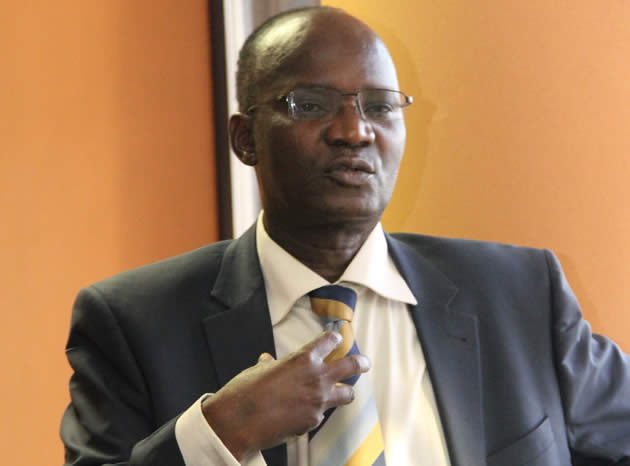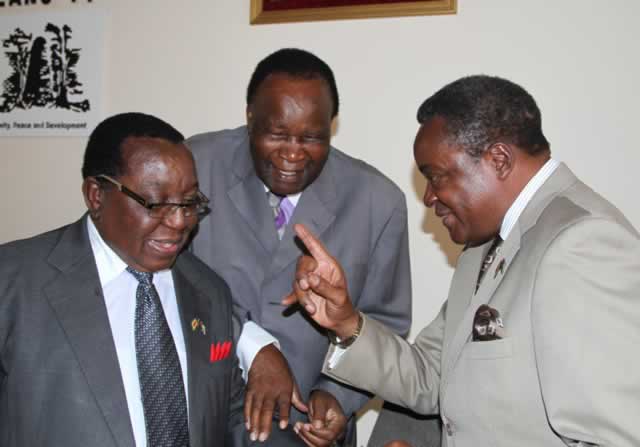Forget internal politics, focus on people’s livelihoods: Moyo

Herald Reporter
IT is not time for Zanu-PF cadres to pre-occupy themselves with internal politics but to implement programmes enshrined in the Government economic blueprint to improve people’s livelihoods, a Cabinet Minister has said. Information, Media and Broadcasting  Services Minister Professor Jonathan Moyo yesterday said everyone should be focused on making Zimbabwe Agenda for Sustainable Socio-Economic Transformation — an economic blueprint to guide Government for the next five years—a success not internal and succession politics.
Services Minister Professor Jonathan Moyo yesterday said everyone should be focused on making Zimbabwe Agenda for Sustainable Socio-Economic Transformation — an economic blueprint to guide Government for the next five years—a success not internal and succession politics.
Prof Moyo made the remarks while delivering a lecture on “Zimbabwe’s Political Environment in the Post-Global Political Agreement” at the Zimbabwe Staff College in Harare.
He said the electorate, which gave Zanu-PF a resounding victory in the 31 July harmonised elections, was more concerned with the results of ZimAsset not “side-shows” like the revolutionary party’s provincial elections.
“The real drama of our national politics is around Zim Asset,” Prof Moyo said.
“We did that after the two-thirds majority win in 2005, though not emphatic as this one, where soon after that comrades started pre-occupying themselves with internal and succession politics. Because it has happened, this time the message is not again, the message is we have managed to come up with a policy document within 30 days upon which the public should hold us accountable.
“You are going to get a different deal this time around. The deal has to be implementation, implementation and implementation.”
Pro Moyo said implementation of ZimAsset would be successful if Zimbabweans stood away from divisive politics.
He said it was pointless for Government to craft a document that never sees the light of the day.
“Many people will tell you that Zimbabweans are notorious for coming up with good policy documents written in good English but whose implementation never sees the light of the day,” he said.
“This new policy is a results-oriented one. The policy is not about story telling narratives which show off the good English our bureaucrats have. It is more a specific implementation matrix where each cluster outlined is defined by key results which are time framed, based on quick wins where people have to see results now.
“We believe that the current environment is defined by a determined preoccupation on the part of Government to be results driven. Because the key is implementation, you are going to see zero tolerance of negative politics, the kind of politics that divide us.”
Zanu-PF provincial elections, Prof Moyo said, should not overshadow Government programmes.
“Even though newspapers might carry sensational stories about provincial elections, Zanu-PF is not a province but a national liberation movement,” he said.
“Zanu-PF is the Government and the Government is not a province. Government is not driven by provincial elections but by a promise coming out of an election manifesto supported by the 61 percent mandate given to President Mugabe and two-thirds majority given to Zanu-PF and we want this to define the dynamics of our national politics.
“We believe if you look beyond the headlines, this is what you will find happening today. We think that after the national budget, the discourse in terms of where priorities lie, will dramatically change and everyone will speak with the same language.”
Prof Moyo said with the elections now a closed chapter, the stability existing in Zimbabwe should offer the country an opportunity to de-polarise.
“We have today a stable Zimbabwe and the stability is speaking for itself,” he said.
“Because of that stability we have today, which is demonstrable and which has come and enveloped our country almost overnight following the election victory, it means we have a new challenge.
“If you look at the last 13 years, we ended up creating an inclusive Government that was dysfunctional. We became poralised as Zimbabweans but because of the emphatic election victory we have an opportunity to depolarise our country. It is an important opportunity that must see us uniting Zimbabweans across the political divide.”
He said it was because of polarisation that the country failed to access lines of credit over the past decade.
“You do not find a single Zimbabwean who really wants to be drawn into the politics of yesterday,” Prof Moyo said.
“Finance Minister Cde Chinamasa put into sharp focus why polarisation was a bad thing and remains a bad thing. It is because it has increased the cost of offshore money to our country not to Government alone but also other economic players as we have had a high sovereign risk to access lines of credit and international finance.
“That has been directly linked to the poralisation which in turn is related to the sanctions, regime change agenda and the dynamics of succession politics all of which have currently been exposed by the weight of our own electoral mandate given to Zanu-PF. We have a duty to depolarise our country.”










Comments